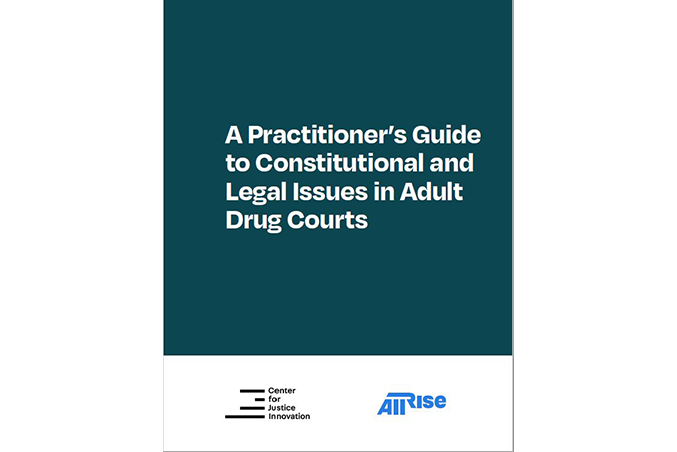New Publication: Constitutional and Legal Issues in Adult Drug Court

We’re thrilled to announce a new, groundbreaking publication, “A Practitioner’s Guide to Constitutional and Legal Issues in Adult Drug Courts.” Produced in partnership with the Center for Justice Innovation, this guide is intended to help practitioners identify and navigate the major legal issues that arise in adult drug courts.
Throughout the guide, its authors offer practice recommendations in areas where the law is unsettled or especially complex. These recommendations are the authors’ best advice for complying with the law while also operating an effective program that adheres to evidence-based practices.
The field has long needed this kind of one-stop resource, and we’ve designed it to be accessible for attorneys and non-attorneys alike. We’re pleased to release it in partnership with the Center for Justice Innovation, working together for years to make this publication possible. – Aaron Arnold, Chief Development Officer, All Rise
The guide is organized in chronological chapters, following the typical adult drug court process from start to finish, exploring the legal issues that arise at each stage:
- Chapter 1 discusses program eligibility and the legal implications of excluding certain individuals.
- Chapter 2 addresses the program admissions process, including plea agreements, waivers of rights, and participant contracts.
- Chapter 3 explores many of the common requirements that adult drug courts impose on participants, including community service, geographic restrictions, and employment requirements.
- Chapter 4 looks at the unique operational features of drug courts such as drug testing, cross-agency information sharing, staffing meetings, and intermediate sanctions in response to participant noncompliance.
- Chapter 5 considers termination hearings and sentencing.
- Chapter 6 addresses special rules for pre-plea programs.